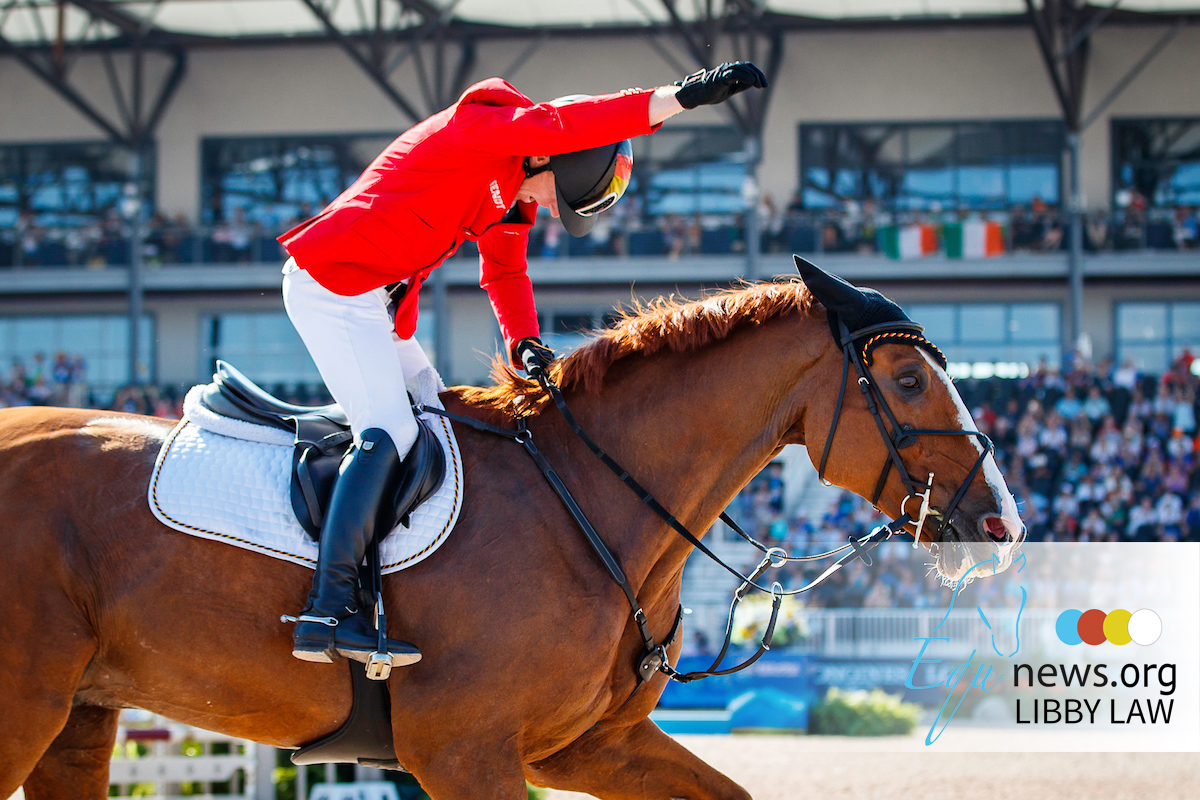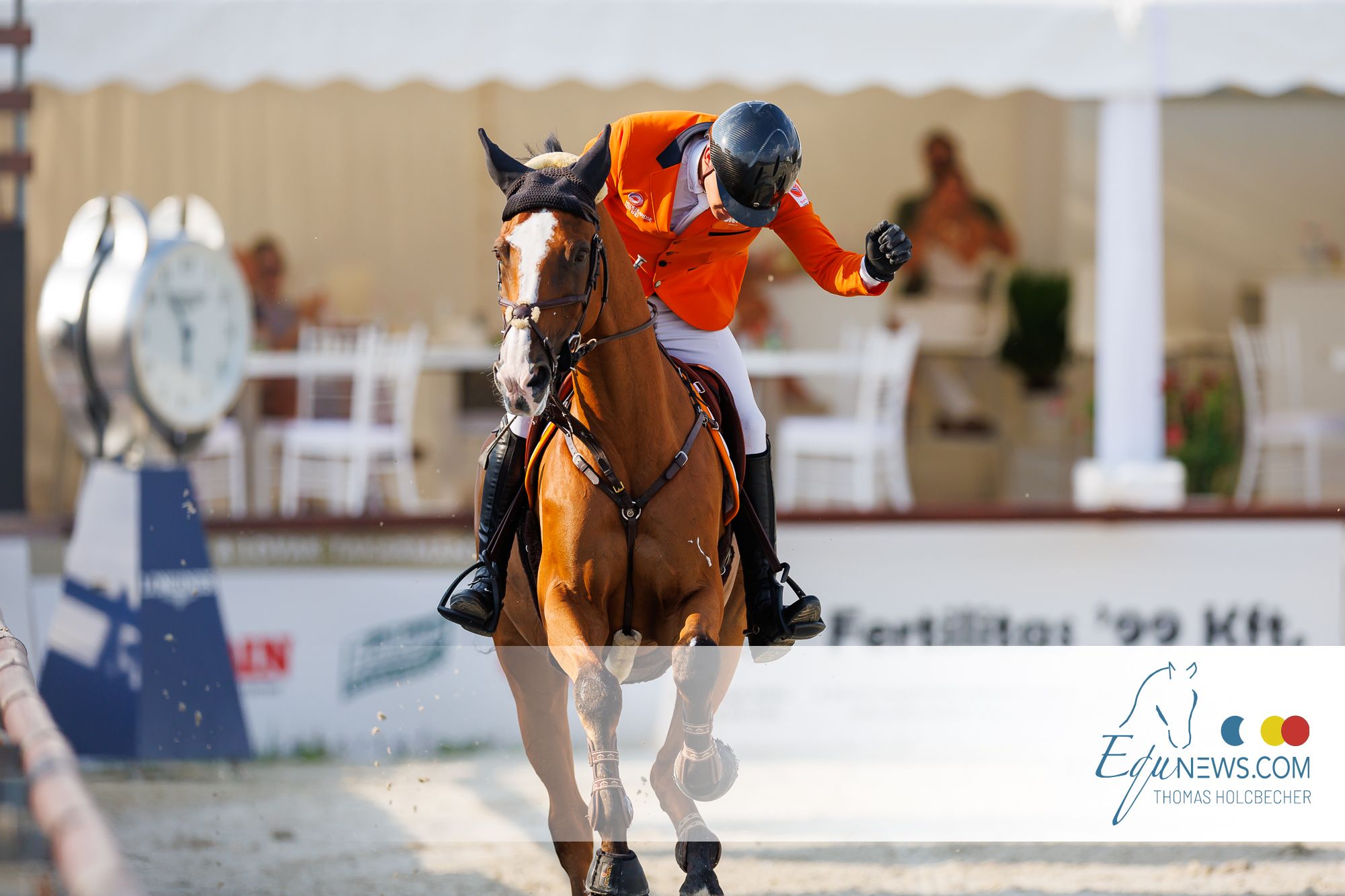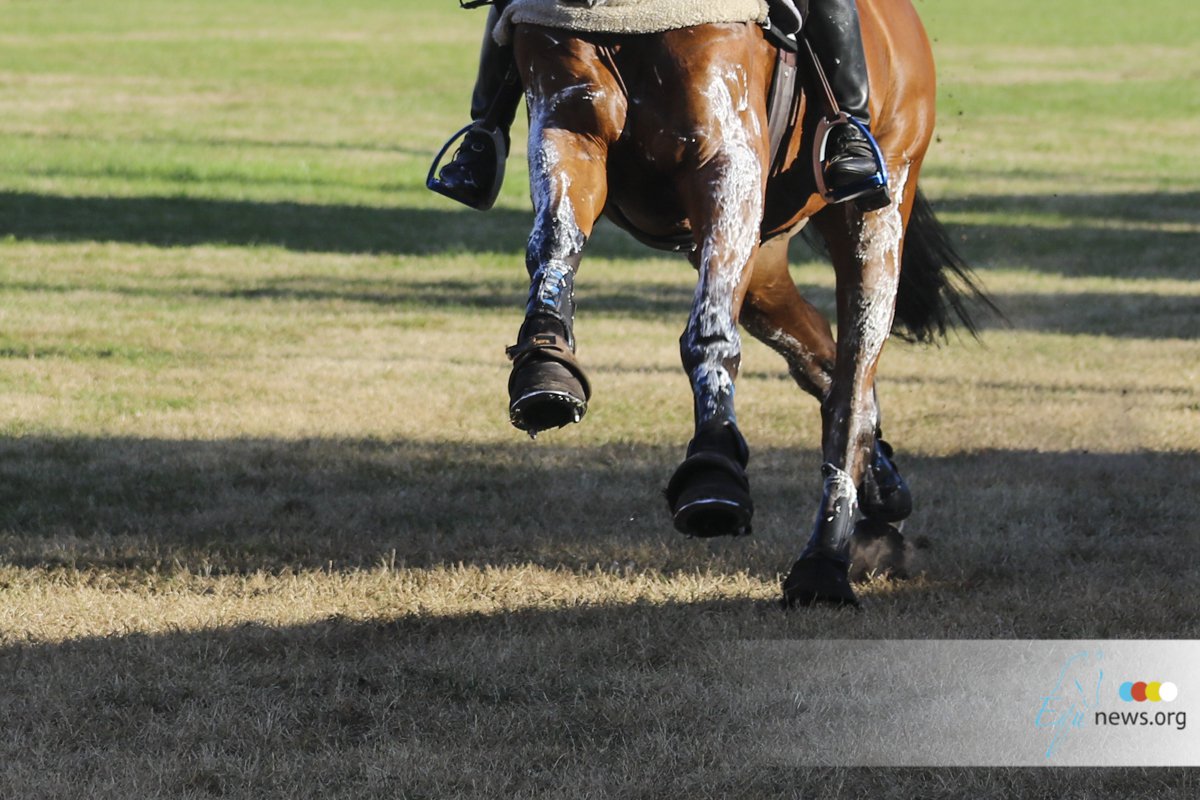The build-up is reaching a crescendo one week ahead of the FEI Jumping European Championship 2023 which gets underway at San Siro Racecourse in Milan, Italy on 30 August.
Team and individual medals are up for grabs, and the flags of 24 nations will fly high at this 37th edition of an event that is steeped in the stories of champions.
A total of 87 athletes and their horses are entered, with 16 countries fielding teams and eight more represented by individuals. The chance for three unqualified teams from FEI Olympic Groups A and/or B to pick up a starting spot at the Paris 2024 Olympic Games also adds to the prospect for a super-competitive week of thrilling sport.
History
This is only the third time in its 66-year history for the FEI Jumping European Championship to be staged in Italy. There were only individual medals on offer when the Italy’s Graziano Mancinelli and Rockette reigned supreme in Rome in 1963 where two more greats - Germany’s Alwin Schockemöhle with Freiherr and Great Britain’s Harvey Smith on Warpaint - stood on the second and third steps of the podium.
At San Patrignano in 2005 it was Marco Kutscher and Montender who came out on top ahead of Switzerland’s Christina Liebherr in silver while The Netherlands’ Jeroen Dubbeldam claimed individual bronze. And Germany took the team title - first introduced in 1975 - that year too when Kutscher was joined by Marcus Ehning, Christian Ahlmann and Meredith Michaels-Beerbaum to pin Switzerland and The Netherlands into silver and bronze.
Ehning has an extraordinary record at European Championships, dating all the way back to Hickstead (GBR) in 1999 when he joined Michaels-Beerbaum, Carsten-Otto Nagel and Ludger Beerbaum to clinch team gold. He did it twice more - in 2003 when he also claimed individual bronze, and in 2005. He was on the silver-medal-winning teams in 2007, 2019 and 2021 and took team bronze in 2009.
Riding the exciting 12-year-old stallion Stargold with which he won the 5* Grand Prix in Aachen (GER) last month, the 49-year-old Olympic, World and European team gold medallist and three-time FEI Jumping World Cup™ champion and is back in Otto Becker’s selection this year. He will be accompanied by Gerrit Nieberg, Jana Wargers, Philipp Weishaupt and Christian Kukuk.
Germany holds pole position on the European Championships Roll of Honour with seven team and 15 individual gold medals collected down the years, three of the latter going to the legendary partnership of Paul Schockemöhle and Deister over three consecutive editions in the 1980s. André Thieme will not defend the individual title he won with DSP Chakaria at Riesenbeck (GER) in 2021.
Defending
The defending team champions are Switzerland, and Chef d’Equipe Michel Sorg brings all four of the side that clinched victory at Riesenbeck (GER) two years ago - Martin Fuchs who also clinched individual silver on that occasion, Steve Guerdat, Bryan Balsiger and Elian Baumann, along with Edouard Schmitz.
The Swiss are in flying form after a summer filled with success including victory in Aachen and three sensational wins in the Longines FEI Jumping Nations Cup™ Europe Division 1 series. But they know they have no room for complacency because they have a double mission in Milan.
Despite their prominence in the sport they are still chasing a qualifying spot at the Paris 2024 Olympic Games and will be on the hunt for one of the three on offer next week along with teams from Austria, Denmark, Italy, Norway, Portugal and Spain. If they don’t make the cut this time around they only have one more chance when a single spot comes up for grabs at the Longines FEI Jumping Nations Cup™ Final in Barcelona (ESP) at the end of September. They won’t want to leave it that late….
Full list
The full list of teams for the 2023 Championship is Austria, Belgium, Denmark, France, Germany, Great Britain, Hungary, Ireland, Italy, Netherlands, Norway, Poland, Portugal, Spain, Sweden and Switzerland and all have entered five athletes except for Norway and Portugal who send only three. Individuals will represent Bulgaria, Greece, Israel, Liechtenstein, Macedonia, Slovakia, Turkey and Ukraine.
There will be seven of the top 10, and 13 of the top 20 riders in the latest world rankings all flying their country’s flags,with world number two Julien Epaillard and world number six Simon Delestre amongst Henk Nooren’s formidable French quintet while the ultra-dependable Harrie Smolders - currently world number three - is listed on Jos Lansink’s Dutch team.
Seventh-ranked Shane Sweetnam headlines Michael Blake’s Irish side, while Di Lampard’s British team includes reigning Olympic champion and world number nine, Ben Maher. Sweden meanwhile has world number one and double world champion, Henrik von Eckermann, playing a starring role in a side that also includes Jens Fredricson, Wilma Hellström, Rolf-Göran Bengtsson and Petronella Anderson.
The Swedes have never won the European team title, taking silver in 2001 and 2017 and bronze in 2013. They twice won individual gold, Bengtsson and Ninja La Silla in 2011 and Peder Fredricson and H&M All In in 2017.
Timetable
The Championship timetable begins with the first horse inspection on Tuesday morning 29 August which will be followed by a training session before the draw for order-of-go in the evening. The first competition, a Table C Speed and Handiness, is open to teams and individuals and takes place on Wednesday 30 August, with the score for each athlete converted into penalties at the end of the day.
The second competition begins with one round on Thursday 31 August and is open to all teams and individuals, but only the top 10 teams and top 50 individuals go through to the second round on Friday 1 September when the team medals will be decided.
The top 25 go through to the first round of the individual final on Sunday 3 September, with the top 12 returning for a second round to decide the fate of the European individual title for 2023.
Source: FEI - Louise Parkes



